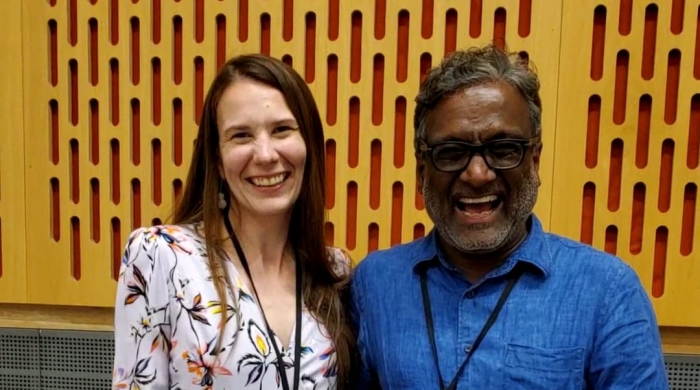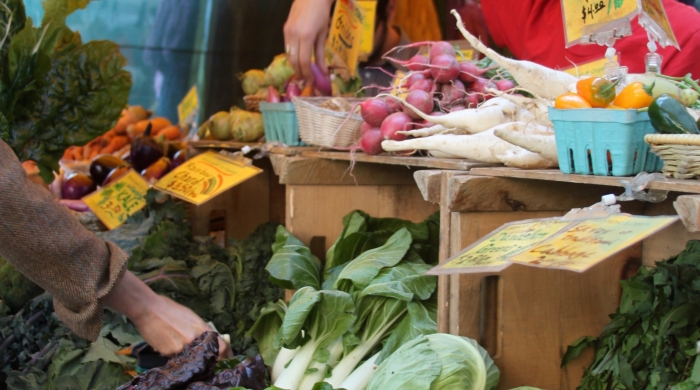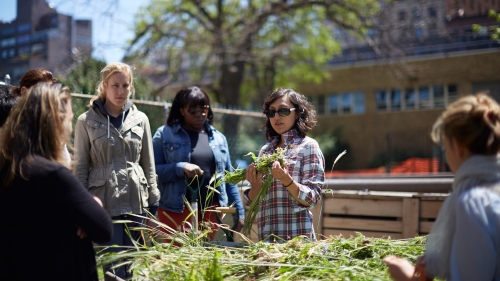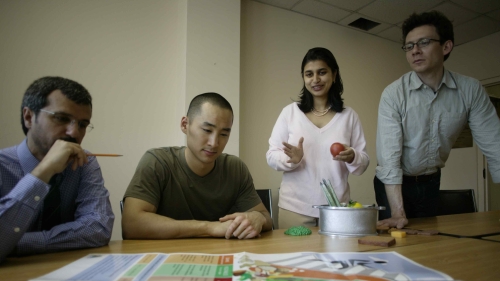“The Power of Food” examined traditional foods as a vital element of cultural identity and a bridge between nations.
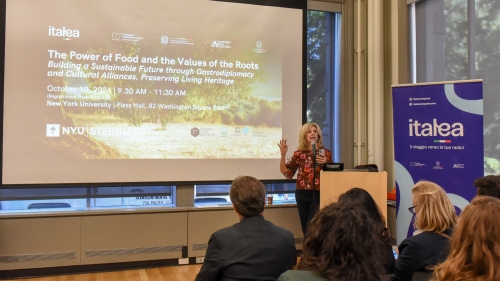
Lisa Sasson speaks at "The Power of Food."
On October 10, NYU Steinhardt’s Department of Nutrition and Food Studies presented “The Power of Food and the Values of the Roots: Building a Sustainable Future through Gastrodiplomacy and Cultural Alliances, Preserving Living Heritage.”
Lisa Sasson, clinical professor of nutrition and food studies and Steinhardt’s associate dean for global affairs and experiential learning, and Sara Roversi, founder and president of the Future Food Institute, organized the conference. The event delved into the profound connections between Italy and the U.S. through the lenses of culinary culture and sustainability.
“As part of the two-week Italian Cuisine and the Mediterranean Diet study abroad course, I use the Mediterranean diet and food as a lens to explore culture, health, sustainability, and nutrition,” says Sasson. “We spend three days in Southern Italy at the Future School Institute, where Sara [Roversi] is the director of the Food Innovation Program. Students gain valuable insights into the simplicity of the local lifestyle, learning how people’s eating habits are shaped by the surrounding landscape.”
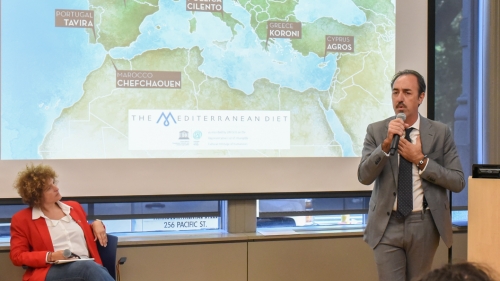
Stefano Pisani speaks about the Mediterranean Diet.
A central theme of the conference was the groundbreaking work of Ancel Keys, the American scientist who studied in Pollica, Cilento, and codified the Mediterranean diet. Recognized by UNESCO as an Intangible Cultural Heritage, this dietary model not only promotes health and longevity but also embodies principles of sustainability and respect for local traditions.
“At The Power of Food, we showcased how the Mediterranean diet exemplifies a model of health, cultural preservation, and international diplomacy,” says Roversi. “It served as a reminder that the way we eat is intimately connected to the well-being of both people and the planet. Through gastrodiplomacy, we're not only celebrating culinary heritage but also shaping sustainable futures.”
The agenda included discussions on how the adoption and adaptation of traditional foods, such as pizza and coffee, in various contexts contribute to preserving culinary traditions and promoting cultural diversity. Speakers included:
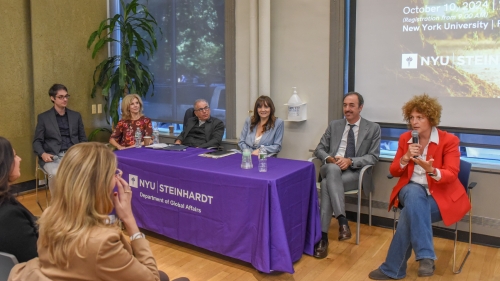
Left to right: Robert Campana, Lisa Sasson, Andrew Fierberg, Germana Valentini, Stefano Pisani, Sara Roversi
- Robert Campana, founder of Stop Italian Sounding, which creates awareness on the differences between real and Italian-sounding food and beverage products
- Andrew Fierberg, who is producing and directing Keys to Italy, a narrative feature about Margaret and Ancel Keys and the origins of the Mediterranean diet
- Germana Valentini, an expert on “roots gastronomy” and Italian-American gastronomic culture and the author of "Veniero. Storie di emigranti italiani a New York"
- Stefano Pisani, mayor of Pollica and chairman of the Centro Studi Dieta Mediterranea
The Power of Food was curated by Italea Campania, Future Food Institute, and the Centro Studi Dieta Mediterranea.
Related Articles
Krishnendu Ray and Co-Authors Awarded Warren Belasco Prize
The professor of food studies and director of the food studies PhD program was recognized for “superior research, a unique perspective and methodological approach, and novel insights for the study of food."
Nutrition and Food Studies Research Benefits New York Communities
This is the second in a series of articles highlighting how Nutrition and Food Studies faculty are combining research insights and applied expertise to bring positive change to New York City.
Jeannette Beasley Receives NYU Grant for Diabetes Prevention Research
The funding will support adapting a successful New-York based prevention program for patients in the United Arab Emirates.
Related Programs
Related Department

Nutrition and Food Studies
411 Lafayette Street, 5th Floor
New York, NY 10003
Phone: 212-998-5580
Email: nutrition@nyu.edu

